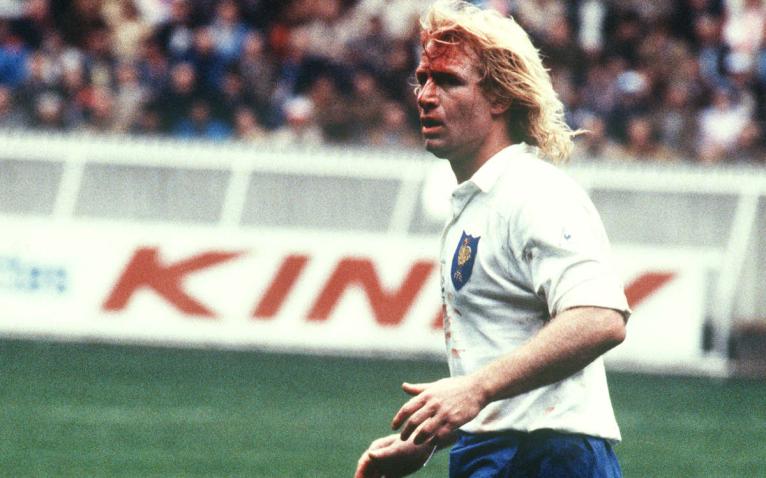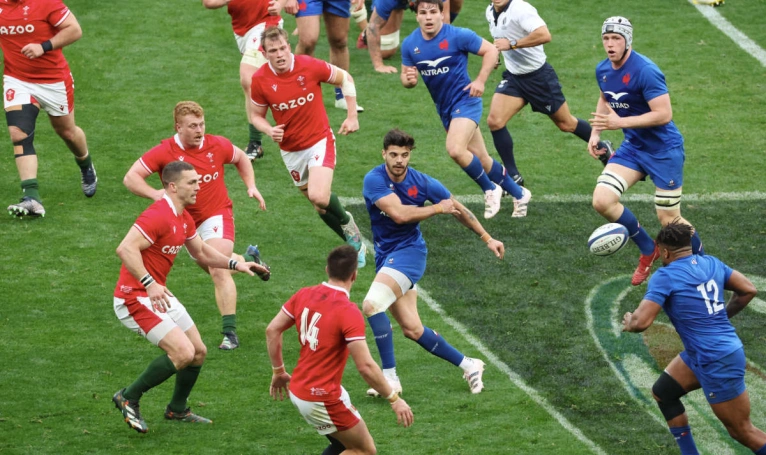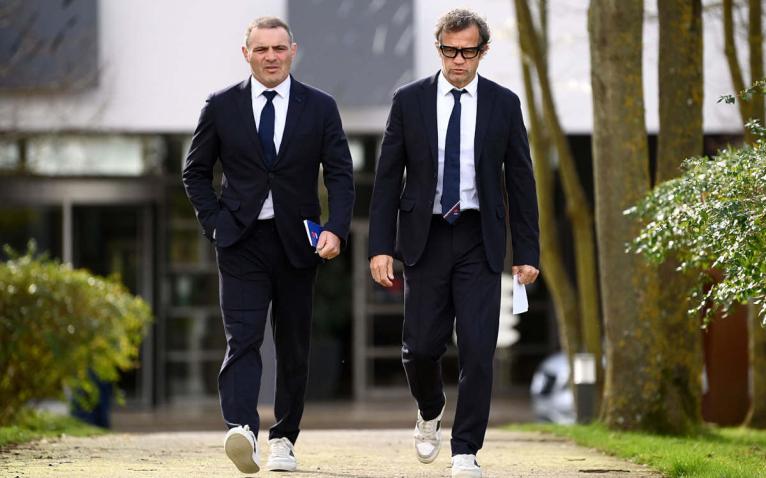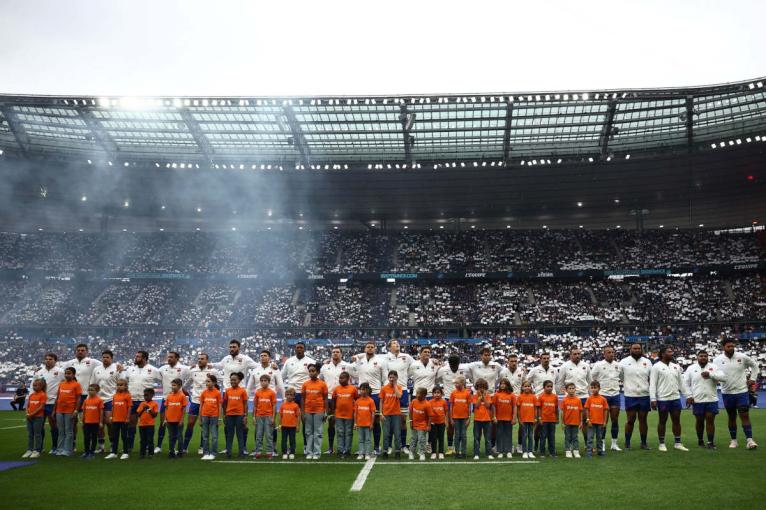When the British introduced rugby to the French back in late 1870s, initially in Le Havre and some Parisian lycées, it was based on rugby de tradition, one steeped in discipline, fair play and the Corinthian spirit so epitomised by Pierre de Courbertin, father of the modern day Olympic games and occasional rugby referee.
But people throughout the provinces of France, notably the Basque and Latin influenced south and south west, mistrusted the Perfidious Albion, and saw their Gallic version of rugby as a means to express freedom, and rebel against all forms of authority – the central government in Paris, the French Rugby Federation, referees, ze Breeteesh, the next village or town, even the Catholic church. L’esprit du clocher, grounded in the original violent game of La Soule, found its ultimate expression in the new game of rugby. Theirs was a rugby de terroir, one based on impetuous emotion, instinct and liberté. After all, rules are for fools, non?
It is this clash of two sporting cultures, British and French, that created the French Rugby Paradox – a capricious mélange of flair and force, beauty and beast, creativity and codification. Over the years, this has manifested itself occasionally as le beau jeu (flair and artistry) but often as le jeu dur (slow and hard/violent).
Throughout its history and up until relatively recently, France and French clubs played their rugby right at the limit between discipline and anarchy and occasionally violence. This is no cliché or stereotype – there are many examples of violent matches in the 1970s, 80s and 90s, even the 2000s. I experienced some myself when playing there!
Heart and emotion have always been central to their mentality and success. As Jean-Pierre Rives told me over a long lunch: “If you want to interest the British in war, tell them it’s a sport. If you want to interest the French in a sport, tell them it’s a war.”

The question is how do France harness their instincts and emotion to get the balance right between all these competing forces? How does it mix the right potion? Because when they do, they are a beautiful sight to behold. And unstoppable. There is no other team in the world I would rather watch. And there is no other team that other teams would rather avoid.
Let’s wallow in some nostalgia for a minute and remember some of their greatest performances: The 1987 RWC semi-final against Australia; the 1999 semi-final against the All Blacks; the 2007 quarter final against the All Blacks; beating the All Blacks twice in 1994, including the try from the end of the world; and beating the All Blacks on 14th July (Bastille Day), 1979 in Auckland. The XV de France is the All Black’s bête noir.
When they smell blood, their attacking instincts take over. Their emotions are finely balanced but controlled. They have no rigid system just a loose framework. Liberté d’esprit leads and discipline follows. When their confidence is up, le beau jeu dominates. It’s like watching the French revolution without the violence, the crowd baying for tries not blood. Les Misérables are transformed into Les Magnifiques.
When the French are at their best, they’re an elixir guaranteed to induce love from all who watch them.
Their greatest players too are a paradox – of mass and lightness, shaped to cut through space with the ease of an arrow. Think of Rives, Blanco, Berbizier, Ibanez, Galthié, Dominici, Sella, Lagisquet, Harinordoquy, Champ, and now Dupont, NTamack, Ramos and Alldritt. Some might be diminutive but they are physical freaks with unbending will power and all technically brilliant players. Their uncluttered minds can scan the pitch to see the space even before it develops. Like a great chess player at speed, they instinctively see the moves ahead. The best play with superlative courage and controlled emotion. They take risks and responsibility. They can process data and likely outcomes far faster than any analyst’s computer sitting in an office or the stand. They deal in the tangible and the here and now, playing what is in front of them. They have an instinctive intelligence, able to compute and make judgements in real time, pushing beyond defeat, beyond exhaustion, sometimes beyond the structural limits of bone and sinew.
When the French are at their best, they’re an elixir guaranteed to induce love from all who watch them.

The eras that best exemplify this are the teams of the 1980s, late 1990s, 2002, 2004 and 2010. But then France suffered a lost decade when the they lost their je ne sais quoi. The French Rugby Paradox stripped the team of all its flair, creativity and liberty.
Let’s look at the facts: France had won the GS in 2010 and finished 2nd in 2011. But for the next eight seasons, they never achieved better than third, and were often fourth, fifth and even picked up the Wooden Spoon in 2013.
Was it down to bad management, poor players, poor conditioning, too much foie gras or vin rouge or too many gauloises? Je ne sais pas. Maybe it was down to trying to be too Anglo Saxon – too disciplined, unemotional and structured. Instinctively, that just isn’t the French way.
Creating a great team and culture is an art. It is about a thousand different things and it takes time and patience
But all that changed in 2020 when Rapha Ibanez and Fabien Galthié took over as Team Manager and Head Coach respectively. They also brought in other world class coaches such as Shaun Edwards, William Servat and Laurent Labit. This team has created The New France.
Since their take over, France has finished second in 2020 and 2021, won the Grand Slam in 2022, and finished second again in 2023 behind a very strong Ireland. It’s not just the results, it’s the quality of the performances too.
I don’t believe there is a science to producing great teams whether in business or sport. Of course you can train, measure, capture data, analyse, codify and quantify to create a good, efficient team. But creating a great team and culture is an art. It is about a thousand different things and it takes time and patience. In rugby, it requires a deep understanding of both the technicalities of the game but also simple communication to the players and a strong understanding of human behaviour and emotions.

Patience is also key and some say that evolution and gradualism are Anglo Saxon concepts alien to the French team. But Rapha, Fabien and their team have been patient, helped by Bernard Laporte when he was at the FFR. The management’s ability over the last three years to solve the French Rugby Paradox is as impressive as it is quick. They have re-discovered the magic potion that makes the French team tick and I think this will be enduring.
But the essential ingredient in this potion is controlled emotion. Without this the French can’t win the Rugby World Cup. It is the catalyst that drives their liberty, instinct and flair.
And Rapha is right at the heart of this. When we met a few years ago, we spent a very enjoyable few hours chatting in Dax, in a bar in the beautifully named ‘Place de la Fontaine Chaude’. On passion, he told me: “David, when I played, everyone would think I was very polite and disciplined but that I also had this Latin gene that could make me lose it. All hookers have a double personality!”
He has obviously mellowed with time. His experiences in England (Saracens and Wasps), Ireland (Munster and Leinster), NZ (Waikato) and in Wales (with Shaun Edwards) have helped him develop as a person and a coach. He is outward looking, constantly learning and he speaks fluent English.
This French squad has gone through its renaissance and rediscovered its balance and beauty, and learnt how to win again.
He understands better than any Frenchman how to combine discipline and systems with emotion and heart. He is their key alchemist.
His openness to ideas and learning is matched by his focus and intensity. With the French squad, he is key to creating the right culture, environment and mindset both on and off the pitch. He is on a mission to win the 2023 tournament. Second place would be failure for him.
The management and coaches are key but there are other reasons too, such as the agreements on money and player availability between the FFR and LNR, as well as the JIFF which has incentivised and compelled the clubs to develop the academy players. I will write more about the cause and effect of all this another time.
For the time being, just enjoy the ride. This French squad has gone through its renaissance and rediscovered its balance and beauty, and learnt how to win again.

France has solved its Rugby Paradox, at least for now.
I have a dream. This Rugby World Cup is going to be the best ever and showcase the best that France, the country and team, has to offer. France might lose to the All Blacks in the opening match, but they will meet them again in the final where they will win. Victory will be as sweet as a freshly picked peach from Agen.
Heart is what drives the French XV and determines their fate.
Let the RWC commence.


When rugby reflects society and culture, it’s the most beautiful thing to watch.
I love Beresford's book "Brothers in Arms" (bought 2 copies) and having seen the 80s teams as a young player I have to agree with his assessment of this team. This French side is so complete and has a magic about them that is tied to the intangibles that Beresford identifies and that is what makes a game like rugby worth playing. Well done.
The author is right when writing it is all a matter of balance. French Flair of old came from, let us be honest, a lack of collective technique and spirit. Technique has come but is has been boxed in strict game discipline where we had a WRC finale but also too many losses. Galthié and Ibanez (and Edwards and all others) brought a strict discipline, strict ways to play rugby in attack and in defense but also asked to think out of the box. When in old times you had "bourrins" forwards (heavy and stupid draft-horses :P ) you have now people able to assess a situation and be part of the solution along with the back players.
Love it. And as a Scot Francophile….Allez les Bleus 💪
I actually hope France win as England can't. Viva Le Blu Viva beautiful rugby.
Brilliantly written.